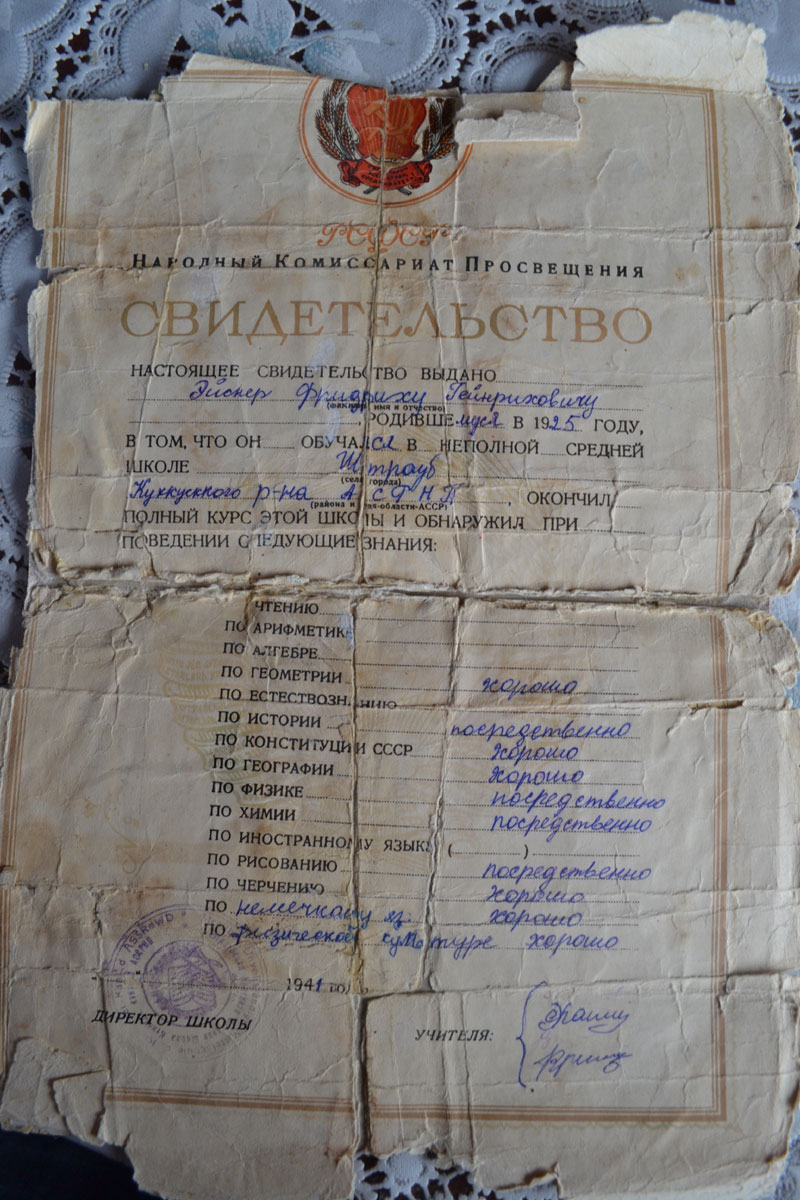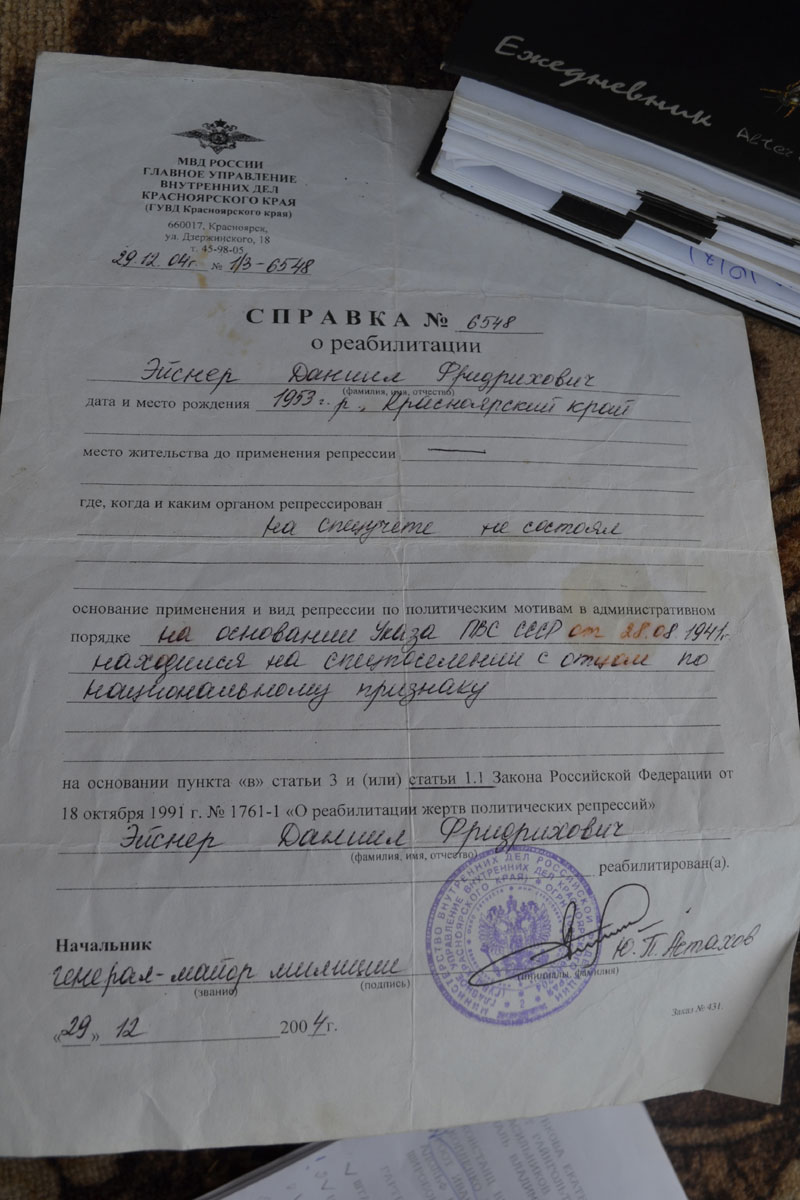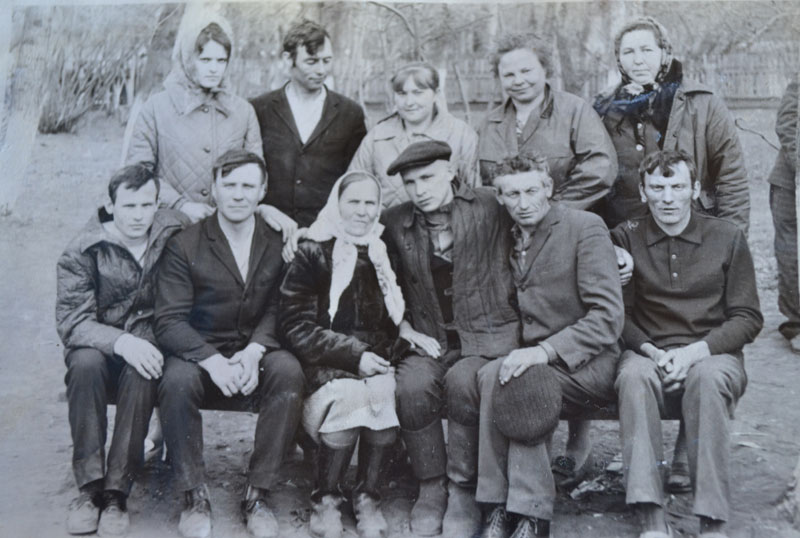









Daniel Friedrichovich Eisner (born 1953)
His father Friedrich Genrichovich (born 1925) was deported and sent into the Labor Army to Turukhansk. There a baker’s wife commiserated with him and sheltered him. Her name was Yelena Artemovna Dyuryagina (Duragina), born 1919, who later become his wife. She fed him. She had a son. Her first husband had been called up to the front, he did not return from war.
The father worked for the fishing industry; there were a lot of Finns in the brigade. He had already been working for the fishing industry before the deportation, as well. Well, at that time he had left for work, and when he return had disappeared. He was able to track them only in Siberia.
In 1956 they went to Sagaiskoe having to leave everything they had little by little acquired in Turukhansk. There were seven children in the family (one of them was the step brother who died early, as well as six children together): Arthur und Fyodor (born 1947), Tamara (born 1950), Alexander (born 1951), Yekaterina (born 1952), Daniel (born 1953).
They lived in a wooden hut in a remote little settlement. Next to the house they built an orchard with ranetki (a soft kind of apple; translator’s note); they dug the holes for piles themselves, in order to lay cables for electrification. Daniel Friedrichovich recalls the noisy and cheerful evenings in front of their house. Later they removed to Sagaiskoe. The mother worked for the tobacco plantation. The children helped with the tobacco crop, delivering the bundled leaves and receiving a few kopeks in return.
The father became a member of the party, staying a passionate communist for the rest of his life. He was a literate man, who had received an attestation before deportation of having graduated from the partial high school in the hamlet of Straub. He was working as a farm director. For a year they were living in Motorsk, as the father had allegedly “besmirched” the reputation of a communist“. They returned afterwards.
The grandmother (Karolina, the father’s mother) wanted to teach her grandchildren the German language, but the father was categorically against. The father had a sister named Yekaterina (Katharina, family name Staitz/Steitz, her son was named Daniel); she lived in Tashkent, later her mother moved to her. Sister and her family left for Germany in 1990; she also invited her brother to leave for Germany. Friedrich Genrichovich, however, had already found his home – in Siberia.
He himself used to speak German and sang German songs, as well.
The people around behaved in a friendly manner. There were many Germans in that place. There were enough of them to form an entire collective.
The interview was taken by Daria Svirina



Expedition of the V.P. Astafev State Pedagogic University Krasnoyarsk and the Krasnoyarsk „Memorial“-Organization on the project „Anthropologic turn in social-humanitarian sciences: Methodology of field research and practical experience in the realization of narrative interviews“ - (Sponsored by the Mikhail-Prokhorov Foundation).